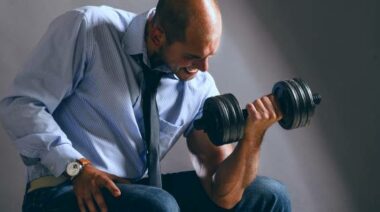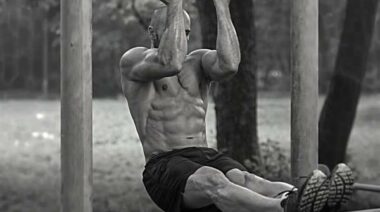Five years ago, around this same time of the year, I was prepping for medical school. I was applying, planning out interviews, doing everything I had to do to make sure I would be in medical school come the next fall. However, one trip to my academic advisor’s office at Texas A&M University was about to change everything.
I was seated in the waiting room waiting for my advisor to have a free minute to talk with me when I picked up a flyer for a medical mission trip. As I walked back to my apartment, which was about a mile from campus, I thought about the possibilities of what my next year could bring. Until then I’d planned to graduate Texas A&M University with my bachelor’s of science degree, continue my studies at a medical program in Texas, go through a residency program, and then become an orthopedic surgeon.
Well, I do like to spice things up every now and then, so when I went home for Thanksgiving holiday I sat my parents down and told them I was going to Tanzania for a medical mission trip. And, oh yeah, I would be leaving the day after Christmas. My parents’ responses were along the lines of sheer shock and what-are-you-doing-with-your-life type questions. They wanted to make sure I did not mess up any plans for medical school or graduating from Texas A&M. You know, the usual parent stuff.
I left for Tanzania Dec 27, 2005. I flew from Houston, Texas all the way to Dar es Salaam, which is the largest city in Tanzania. The plane landed and we walked inside a small warehouse type building to pick up our luggage that was on a conveyor built circling from outside to inside. Once I got my duffle bag, I looked around and found a young gentleman with a sign that read my name. I went up to him, introduced myself, and we walked outside. Rashid informed me that we would be getting a ride to the bus station and then ride the bus to Moshi, where my group was staying. We hopped in an old maroon sedan and headed to the bus station.
The bus station was pure chaos. I had my backpack on and my duffle bag in one hand. Rashid led the way through the crowds. We bought a ticket and then got on a bus most likely built in the 1980s that had seen no upgrades since. When I stepped on the bus the volume increased in the crowd outside and people seemed agitated. Rashid instructed me to sit while he went to check what the commotion was about. He came back with my disposable camera in hand. He informed me that some thug had stolen it from my backpack but that his people don’t put up with that behavior. I was amazed.
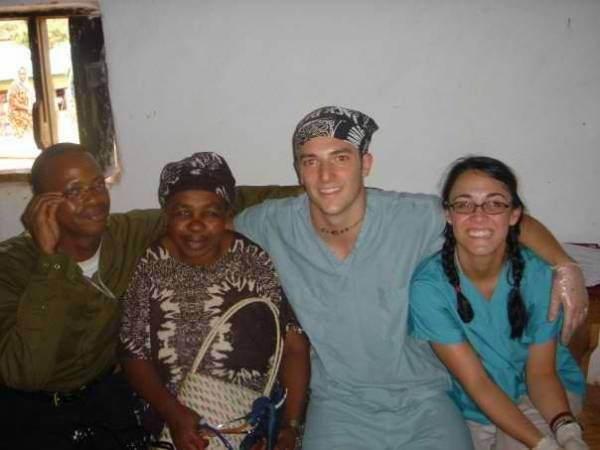 Once on the bus safely, Rashid told me it was a nine-hour trip to Moshi. Not the worst thing in life, except it was a bit of a bumpy ride and I had my first experience using the restroom squatting. Yes, squatting while using the restroom is completely normal. This trip was beginning to open my eyes to the fact that some of what we do as Americans is not so common in other cultures.
Once on the bus safely, Rashid told me it was a nine-hour trip to Moshi. Not the worst thing in life, except it was a bit of a bumpy ride and I had my first experience using the restroom squatting. Yes, squatting while using the restroom is completely normal. This trip was beginning to open my eyes to the fact that some of what we do as Americans is not so common in other cultures.
Once in Moshi, I met my group, including my leader Reverend Bernbaum. We hung out for a day while everyone got situated. We went to town to get phone cards so we could call our families from a pay phone. We went to an Internet café to use email to inform our families that we made it just fine. We went over the procedures we would as student doctors would be performing, such as taking histories, blood pressure, and lung auscultation. People were authentic. The town was pleasant. I was satisfied with the first day.
We stayed at a convent that was built in the 1800s. There were a dozen or so rooms, a kitchen, two bathrooms, and a living area. I shared a room with a girl named Elaine from New York. We slept in our single beds with mosquito nets surrounding each of us. There was a house lady who prepared breakfast for us and looked after us, too. Breakfast consisted of eggs, since there were chickens in the backyard, biscuits, cucumbers, and local fruits.
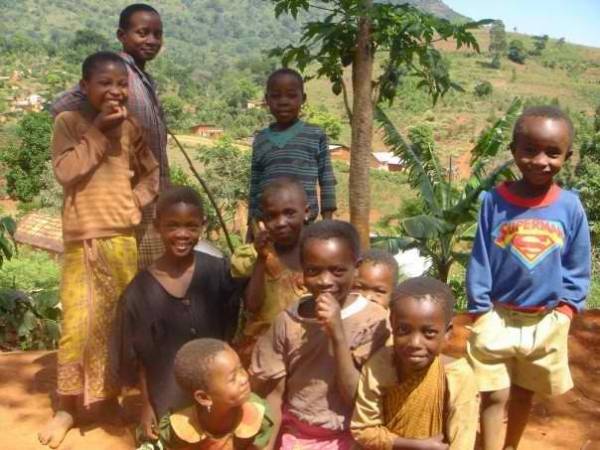 During the weekdays we did our medical mission work. We were assigned partners. I definitely lucked out with a guy named Andrew as my partner. He was from West Virginia, smiled at everything, and made the most of every situation. We performed general triage on people of the surrounding villages. Andrew and I would take turns writing notes and performing exams. Some days we would hike for miles to distant villages to reach patients who could not make it to the hospital in town. Other days we would find a little building in a village and open a clinic for patients to meet us at. We worked under one of the few doctors in Moshi. We worked from the time we woke up until the last patient was seen.
During the weekdays we did our medical mission work. We were assigned partners. I definitely lucked out with a guy named Andrew as my partner. He was from West Virginia, smiled at everything, and made the most of every situation. We performed general triage on people of the surrounding villages. Andrew and I would take turns writing notes and performing exams. Some days we would hike for miles to distant villages to reach patients who could not make it to the hospital in town. Other days we would find a little building in a village and open a clinic for patients to meet us at. We worked under one of the few doctors in Moshi. We worked from the time we woke up until the last patient was seen.
There was a time when Andrew and I had a difficult case. It was a young child, maybe about eight years old, who was paralyzed on the left side of his body and had occasional seizures. It was my turn to interact with the patient. The mom was desperate to help her son and I was frantic to help them both. After reviewing the case, the overseeing doctor informed me the child had suffered meningitis as a baby. They never made it to the hospital for treatment, so this could be the cause of his disability. The doctor also informed me they could put the son on a type of barbiturate for his seizures, but the prescription would run out in ninety days or so.
To say the least, I was stunned. I was in awe that the medical doctor, or we as student doctors, could not do anything to ‘fix’ this young boy. That’s when my head started spinning. My passion was helping people, yet I could not help this young boy or his mom. I realized that drugs are not the answer to everything. They are not even the answer to most things. Yet, as Americans, we head to the pharmacy for every little symptom. Though I didn’t know it yet, it was here that my path to chiropractic began.
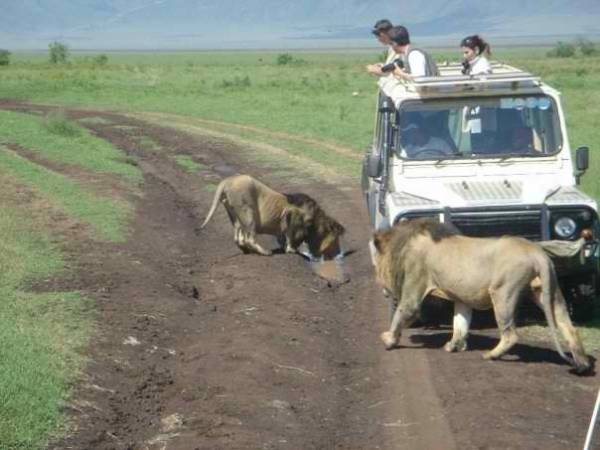 The rest of my trip in Tanzania was incredible. One night we had a New Year’s celebration in which we had a goat barbeque and danced to a drum circle. We even interacted with Messiah tribesmen that you hear so much about. We went on a few safaris, where we saw tons of monkeys, giraffes, lions, zebras, and elephants (my personal favorite). We even saw a cheetah attack and eat its prey. We hiked part of Mt. Kilimanjaro and saw beautiful flowers, views, and creatures. For a few nights, we talked about time together in Africa over warm beers at a local bar. And, a few of us celebrated my twenty-second birthday one night by candlelight.
The rest of my trip in Tanzania was incredible. One night we had a New Year’s celebration in which we had a goat barbeque and danced to a drum circle. We even interacted with Messiah tribesmen that you hear so much about. We went on a few safaris, where we saw tons of monkeys, giraffes, lions, zebras, and elephants (my personal favorite). We even saw a cheetah attack and eat its prey. We hiked part of Mt. Kilimanjaro and saw beautiful flowers, views, and creatures. For a few nights, we talked about time together in Africa over warm beers at a local bar. And, a few of us celebrated my twenty-second birthday one night by candlelight.
After our three weeks in Africa came to a close, I traveled home. I made the decision that I would not being attending medical school. I decided I wanted to be a natural healer, but I just didn’t know what kind. All I knew was that I wanted to be able to help someone without shiny tools and pharmaceutical drugs. I did not want to depend on anything else except my knowledge and what God gave me. I wanted to facilitate health and life around me, naturally.
To say this trip was a trip of a lifetime would be an understatement. I did not even know the effects this trip had on me for days, weeks, months, even years down the road. While in Tanzania, I witnessed life at its purest form. Life does happen regardless of the details. There is no need for fancy objects, shiny tools, or fast cars. Babies will be born, people will hunt and gather for food, and animals will roam. As Americans, most of us have lost the luster of life. What I learned in Africa is that life instinctually knows what to do – to move forward – and nothing has shaped my career as a doctor more than that very thought.


